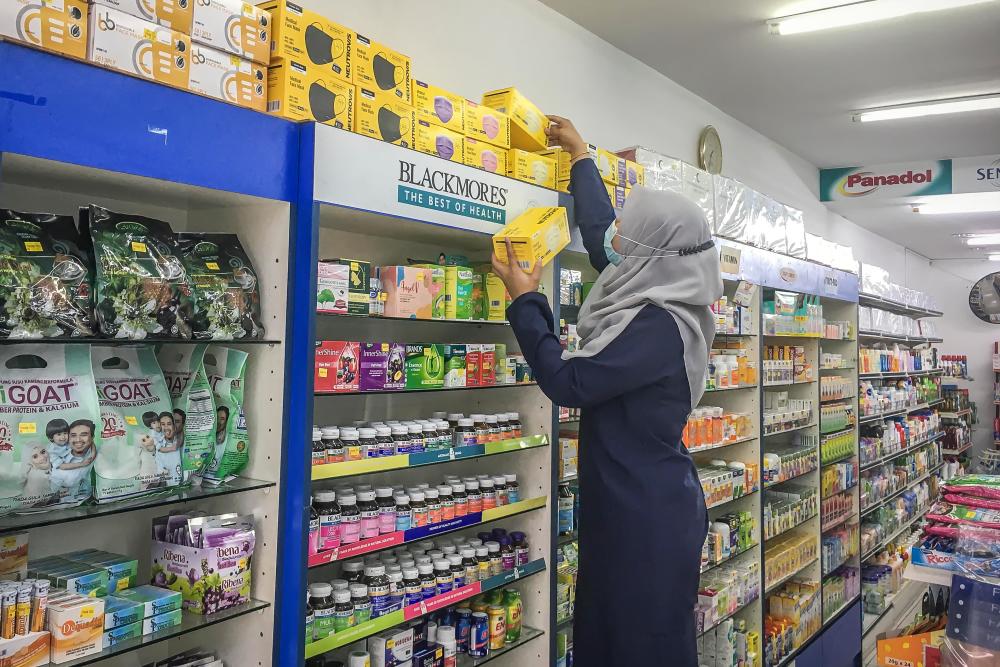KUALA LUMPUR: The producers and importers of food products, cosmetics, pharmaceuticals and medicines are responsible for any death or injury caused by the consumption or use of such products and not the Health Ministry (MOH), said its minister Dr Zaliha Mustafa.
She stressed it is the producers and importers that must ensure the products are safe for human consumption and use.
Zaliha was responding to theSun on why some of these products were withdrawn from the market after having been sold for some time, and if her ministry will bear responsibility for any death or injury caused by them while they were sold.
She said generally, food products do not require prior approval before importation, except for special-purpose foods that are not specifically regulated under the Food Regulations 1985.
“The ministry only issues a licence for the production of packaged drinking water, natural mineral water and ice. In addition, the ministry also issues licences for handling water-vending machines.
“Thus, we cannot be held responsible for any damage caused by any food with prior approval of the ministry because the responsibility to ensure it is safe for human consumption lies with food producers as stipulated by law.”
Zaliha said pharmaceutical products, including traditional ones, health supplements, veterinary products and cosmetics are only required to be registered with or have a notification sent (for cosmetics) to MOH via the National Pharmaceutical Regulatory Agency (NPRA) before they can be imported for sale in Malaysia. Other products do not need such registration or notification.
All food products must comply with the Food Act 1983 and its regulations.
To ensure the safety of food products sold in the market, she said the MOH Food Safety and Quality Division regularly carries out monitoring and enforcement activities on domestic and imported food.
Verifications at (local) food processing establishments are also done to detect any unusual substances being added to food products.
“If any food is found to contravene the Food Act 1983 and its regulations, anybody along the food supply chain that is responsible for preparing or selling the food may be prosecuted and a notice of recall will be issued to the owner of the food (product involved),” she said.
Zaliha disclosed that from 2021 until this March, a total of 150 recall notices were issued to food business owners.
“As for food import controls, activities at the entry points include inspection and sampling of food consignments, while the level of examination will be based on ‘risk’. The consignment will be rejected if it fails to comply with the Food Regulations 1985.
“This includes breach of standards, exceeding the maximum residue limit for safety aspects, not being accompanied with additional documentation such as a health certificate, and recurrence of contravention.
“Based on the (random) sampling that has been carried out for imported food, the most common non-compliant food products are fresh produce (fruits) and pre-packaged food (canned foods).
“In 2021, 3,850 imported food samples were analysed and 91 were found to have contravened Section 29 (1) of the Food Act 1983. Last year, 3,563 samples were analysed, with 80 contravening the section, while up to March this year, 1,083 samples were analysed and three were found in contravention.”
Zaliha said through a Post-Marketing Surveillance (PMS) programme, unsafe products would be removed from the market, hence protecting the consumer (from further damage).
“The Product Registration Holder (PRH) or Cosmetic Notification Holder (CNH), that is responsible to register a product or notify MOH about the importation of a cosmetic product, is also responsible for all aspects of it, including ensuring quality, safety and compliance with regulatory requirements.
“The PRH and CNH are not required to submit samples for analysis to the NPRA for product registration or notification of cosmetics (prior to their approval for sale), so it is their responsibility to ensure that all imported food and cosmetics are safe before their sale in Malaysia.
“Sample analysis is (only) conducted after products have been registered or notified under the PMS programme. However, sampling may be conducted by an authorised officer and sent for testing to the approved laboratory if necessary,” she said.
Zaliha also confirmed that no tests are carried out by the MOH on samples of food, cosmetics, pharmaceuticals, medicines, or such imported products before they are allowed for sale in Malaysia. She stressed that this too is the responsibility of the manufacturer or importer (that has) to perform quality control testing for each batch of products they released.
She said under the PMS programme, from 2021 until this February, the NPRA had tested a total of 4,433 pharmaceutical products (including traditional products) and 2,581 notified cosmetics.
Of these, one traditional product and 38 cosmetic products were found to contain prohibited substances such as Methyl Salicylate, Simvastatin, Diphenhydramine, and Sildenafil among others.
“This March, the Drug Control Authority cancelled the registration of 14 pharmaceutical products containing pholcodine based on a safety risk assessment,” she said.
Despite the “no responsibility” position of the MOH, Zaliha stressed that it is committed to safeguarding the public’s health through a comprehensive national regulatory control system that oversees the safety, quality and efficacy of registered products in the market.









